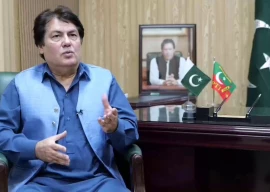
For one, the anger emanating from the Abbottabad episode has continued to simmer; the US sense of deep disappointment continuing to fester like an open wound. This would have been worrying at any time, but far more so when the White House has trumpeted its resolve to end combat operations in Afghanistan by 2014.
The Obama administration has few, if any, complaints with Pakistan’s political leadership, notwithstanding the latter’s widely acknowledged corruption and near absence of governance, primarily because it believes that the civilians have little say on national security issues. The military and intelligence agencies are therefore seen as villains, responsible for pursuing an agenda that the US views with deep mistrust and escalating suspicion.
Consequently, Washington’s impatience is exacerbating an already bad situation, especially as it recognises that there are no neat solutions to its predicament in Afghanistan. Thus there is a tendency to lash out at Pakistan and hold the latter responsible for all that ails the US in Afghanistan. What has further handicapped the US approach is an absence of clarity and an inability to get all its players on the same wavelength. The president’s political associates appear to have a better feel for current ground realities in Afghanistan, which has led them to the conclusion that not only is a decisive victory out of the question, but even ensuring a reasonably decent ‘exit’ may well be problematic.
Moreover, with the economy showing no sign of recovery — the latest figures have added to deepening gloom — and Republicans demonstrating unprecedented intransigence, there is virtual deadlock on all issues, especially those relating to the economy. The president may therefore have little to offer on the economic front, which is what matters to the electorate, leaving him with no option but to toss foreign policy ‘crumbs’ at them to bolster his election prospects. Libya has proven to be a small but helpful development, but come election time it may not even be a small blip on the radar screen. However, an end to the Afghan fiasco, which has already cost the US nearly half a trillion dollars, could be sold as powerful evidence of Obama’s wisdom and resolve. Of course, this will happen only if the American exit can be wrapped up in an international agreement that talks of reconciliation within Afghanistan and provides for guarantees of non-intervention and non-interference by the neighbours.
But even this minimalist agenda requires clarity in Washington’s policy and determined pursuit of clearly articulated goals. Washington insiders, however, claim that while the White House is determined to bring about a ‘closure’ to its engagement in Afghanistan, the Pentagon remains opposed to an early end to combat operations, convinced that such a policy would be an incentive to al Qaeda and the Taliban to simply outsit the Americans and then plunge the country back into chaos that will serve its strategic objectives. And this is an approach that reportedly finds favour with the secretary of state, who is distancing herself from the White House’s strategy in Afghanistan.
In the meanwhile, Washington insiders speak of intense anger increasing with Pakistan, particularly if it is seen as not being helpful, especially on the Haqqani issue. A reduction in the Kerry-Lugar assistance package could be an early first step to convey Washington’s displeasure. And if Afghanistan turns out to be a bigger mess than it already is, Pakistan could be a convenient fall guy. This does not mean that a major crisis in relations is imminent, but unless both countries take immediate and concerted efforts, it could become inevitable. The danger signs are all there.
Published in The Express Tribune, September 7th, 2011.
COMMENTS (4)
Comments are moderated and generally will be posted if they are on-topic and not abusive.
For more information, please see our Comments FAQ








1732643921-0/4548774-1403918848-(1)1732643921-0-270x192.webp)








The term "fall guy" implies that Pakistan is an innocent party taking unjust blame - no one outside of Pakistan believes that.
I slightly differ from the author on "And if Afghanistan turns out to be a bigger mess than it already is, Pakistan could be a convenient fall guy."
Actually, Pakistan IS the fall guy in this mess Sir.
It desperately wanted Hakim and Baitul Mehsud to be killed But they are in no hurry to dismantle Haqqani or Quetta shura! Isn't this double game Sir?
And isn't this what is going on since 2001, Afghan invasions?
I am no fond of Americans. But lets face it, from very begining Pakistan Govt wanted to keep its Terror export infrastucture intact. And so it did.
Now it must bear the burden of its results!
A few more incidents in Kashgar and Delhi in next 10 years and Pakistan would really be reaping fruits of its policy Sir!
About time it see the writing on the wall, See what is happening in Eastern side of India. Bhutan, Nepal, Bangladesh and India have already concluded trasport corridors and access to each other's market. 5 more years and this would extend to China, Burma and Thailand.
Shouldn't rather Pakistan join the club of prosperity rather then be spolier state and suffer ill-reputation?
The danger signals were always there but only now has USA realized that those enjoying the perks of Power do not want a break with the past. That money has been accepted as Military and Civilian Aid but anti American sentiments continue to be fanned, would not have endeared Pakistan to the influential coterie in Washington.